Report launch: Call for socially-responsible journalism
Speakers urge the need to build linkages between media and the public.

Educating both viewers and mediapersons about key media concepts can lead to meaningful and socially-responsible content. It can help empower citizens by transforming their passive relationship with the media to an active one, and also pave way for valid and responsible reporting.
These views were expressed by participants at the launch of a report titled “Taking back-II: From passive to proactive” by Uks, a research publication centre, in collaboration with The National Endowment for Democracy (NED) at a local hotel on Tuesday.
The report is based on the outcome of a year-long project on promoting media literacy by building linkages between media and the public. The report also initiates an open dialogue between the media and the civil society on existing media trends.
Speaking on the occasion, International Islamic University Islamabad (IIUI) Media and Communication Studies’s Head of Department Dr Zafar Iqbal said, “Media has the power to put new brain into people’s skulls.” However, he said that by publishing and airing non-factual reports, the media is confusing the audience and deterring them from differentiating between right and wrong.
“It is a cause of concern when instead of focusing on the deliberations of a conference, TV channels choose to broadcast videos of a participant who accidently fell from his chair or while getting up on stage,” said Iqbal. “Can anybody tell what ethics are being followed here? There is dire need to set standards to avoid such meaningless stuff on media,” he remarked.
He criticised print media too, saying it has become difficult to differentiate between hard news, analysis, reports and opinions. Newspaper should give a slug on the analysis or opinion pieces so that readers can differentiate between them, he said. He termed “breaking news syndrome” as a big threat to the life of many innocent viewers.
An IIUI student, Ammara Fatima, representing the general viewers, said, “It seems strange to hear Bollywood news as a part of national news segment or to listen to songs in news bulletins. And unfortunately all channels are adopting these [practises].”
She said in talk shows people see their representatives fighting with each other using slang, while majority of soaps have no storyline and focus only on glamour, “which is giving nothing to the viewers”. Fatima said no one knows what is currently happening on TV channels as they are not reflecting or following public agenda. She proposed setting up a media watchdog in the country to monitor and regulate media content.
Director Uks Tasneem Ahmer said media literacy can help a lot to overcome all the loopholes in media and also empower audience to decide what is right and wrong. She expressed her concern over the contact details of rape victims that are being openly broadcasted on electronic media.
A senior journalist, Amir Mateen, conceded media’s negative role but insisted it was also playing a positive role. He said there is a need to understand the root cause of these negative points. He also expressed his concern over the decline in the number of female journalist in print media, especially in Urdu newspapers.
Published in The Express Tribune, November 30th, 2011.



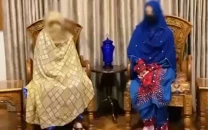
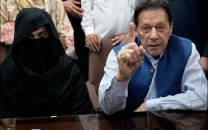
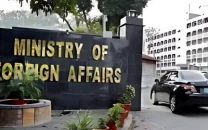
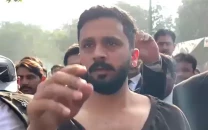




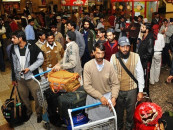
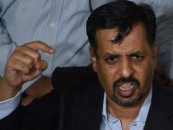






COMMENTS
Comments are moderated and generally will be posted if they are on-topic and not abusive.
For more information, please see our Comments FAQ